Cooking Up Success: The Worcester Food Hub
Photos by Adam Detour
As Brian Neyenhouse pulls a sheet pan of maple- and honey-enhanced granola out of the convection oven, a sweet, toasty aroma fills the kitchen. Close your eyes and you might think you’re at home, but Neyenhouse is baking at the Worcester Regional Food Hub in Shrewsbury. His Nutty Bird Granola is one of 13 fledgling businesses getting a start in the food hub’s cozy incubator kitchen, first of its kind in Central Massachusetts.
As a sole proprietor, Neyenhouse does everything from mixing the granola—organic oats from Maine with cashews, almonds, pumpkin seeds and coconut flakes—to filling, weighing and packing 12-ounce brown bags printed with the colorful Nutty Bird logo and selling them at farmers markets in Hopkinson, Medfield and Natick.
He trained and worked as a chef in Seattle before coming east when his wife was offered a career move to Boston. Neyenhouse became a stay-at-home dad to their two children; his granola recipe was a staple of the family’s breakfasts at their home in Sherburne.
As the children got older, Brian scaled up the granola recipe to make it the basis for a business. Over the past year he searched churches and other local organizations for a commercial kitchen, but didn’t find the perfect match until he was introduced to the incubator kitchen at the Worcester Regional Food Hub.
Commuting west for his weekly stint at the food hub kitchen, located within the Worcester County Food Bank, is easier than driving into the Boston metro area, according to Neyenhouse. Another plus: The rates for membership, a requirement to use the incubator kitchen, are a very reasonable $25 per hour. Membership also includes consultation and advice from experts in area businesses.
In addition, there’s an on-site kitchen operations manager, Neil Rogers, a chef with more than 20 years’ experience heading restaurant kitchens in Central Massachusetts, Connecticut and Texas.
“People here have been so helpful and welcoming,” Neyenhouse said. “It was a challenge working my way through the process of getting permits and licenses.” Rogers gave him advice and assistance in the application process that will give Nutty Bird Granola access to wholesale markets. His expertise at problem solving is valuable too.
“Neil saw me struggling to measure and fill 12-ounce bags with granola from the bin where I mixed it and suggested I use plastic quart containers to weigh the granola first. Then it’s much faster to fill the bags from the containers,” Neyenhouse explained.

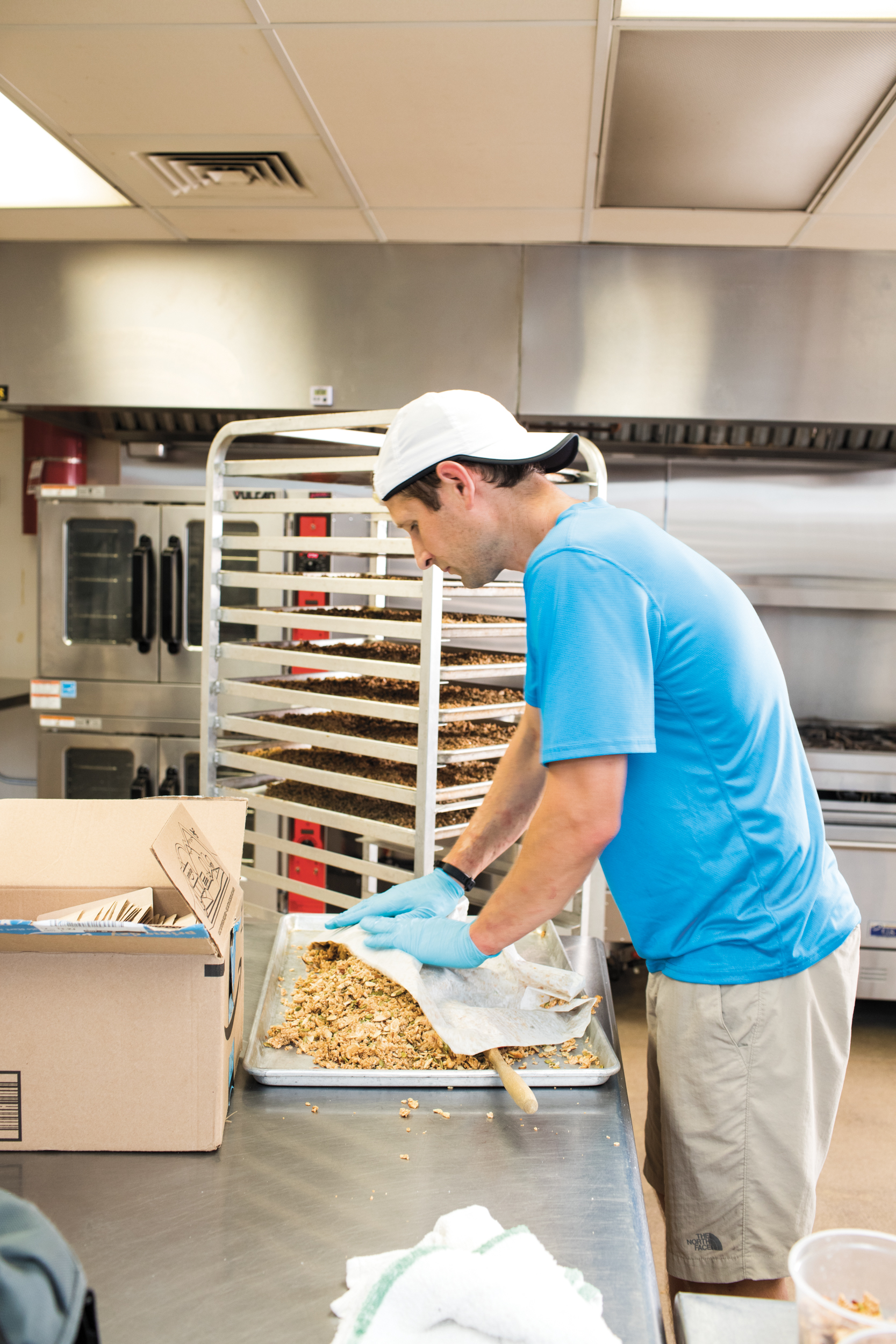
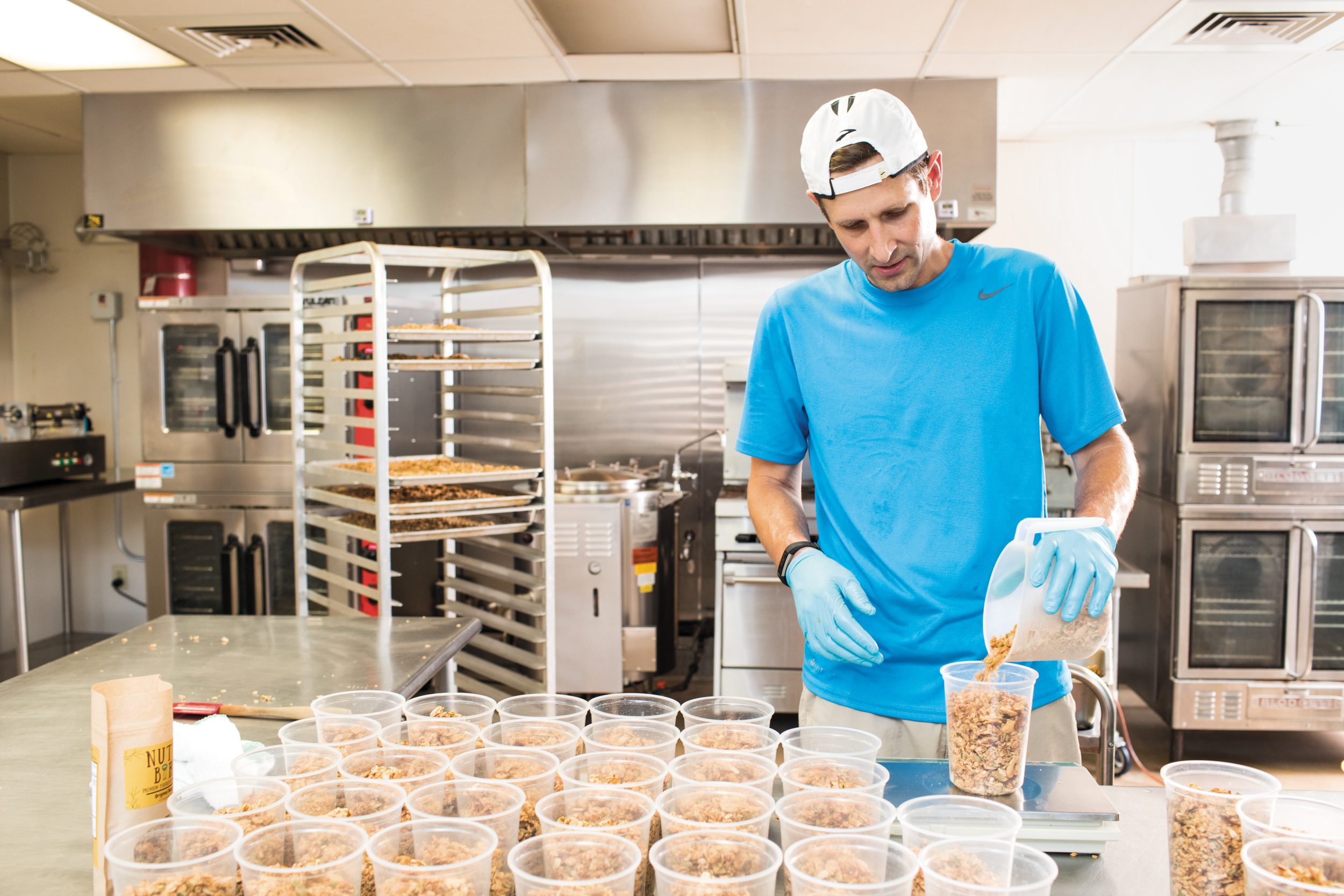
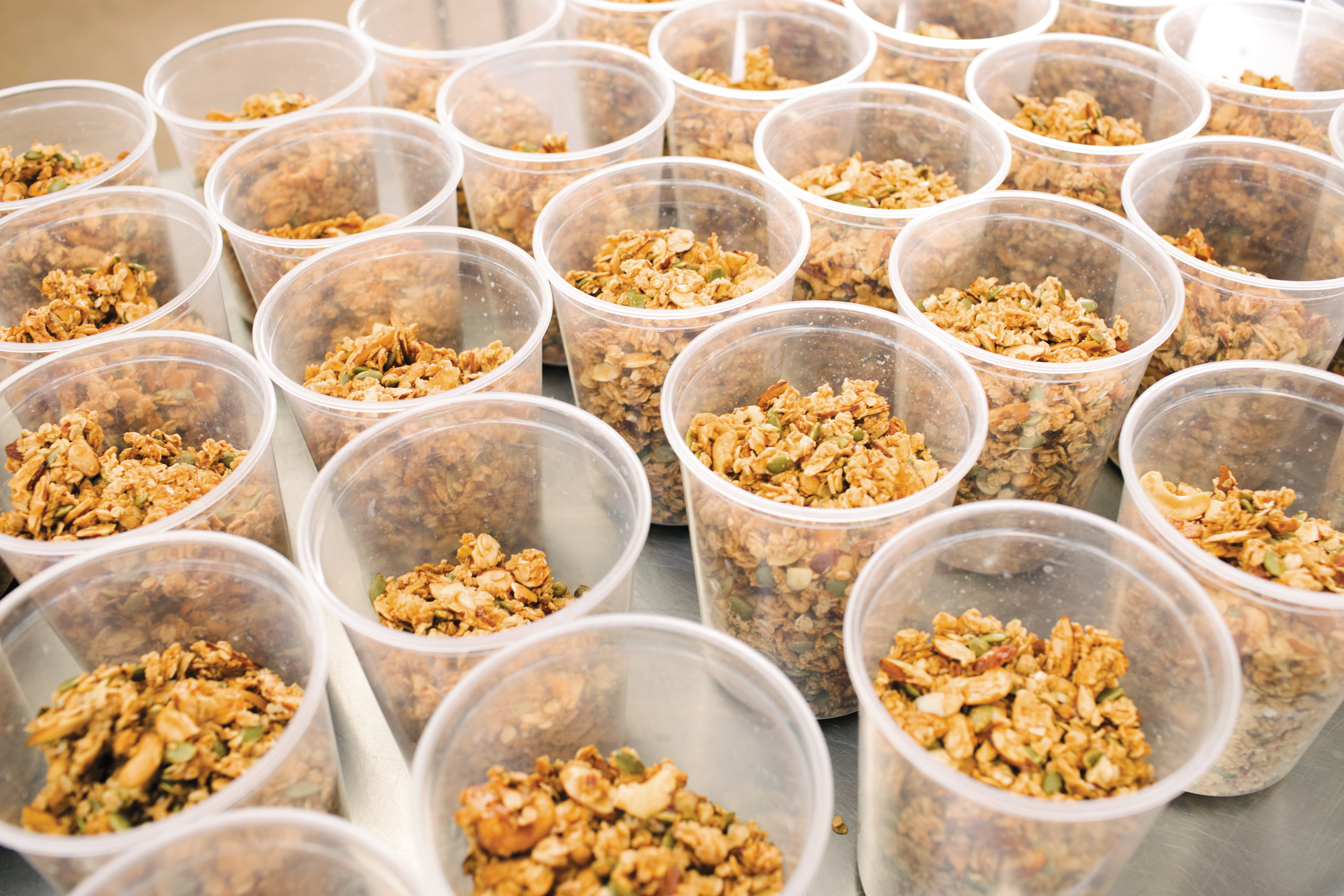
Problem solving is one of Rogers’ specialties. On an average day his to-do list includes: connect a young food entrepreneur to a consultant for help with developing a business plan; lead prospective clients on a tour of the incubator kitchen; and fix a touchy bottling machine so a start-up salsa maker is back in business.
The most common problem for new food businesses is that entrepreneurs tend to underestimate the amount of time it takes, according to Rogers. “They think, ‘I can do a farmers market, it’s only a four-hour block of time.’ They forget to factor in the hours to prepare the items for sale, set up and take down at the market as well as travel time. In reality, it can be up to 16 hours.”
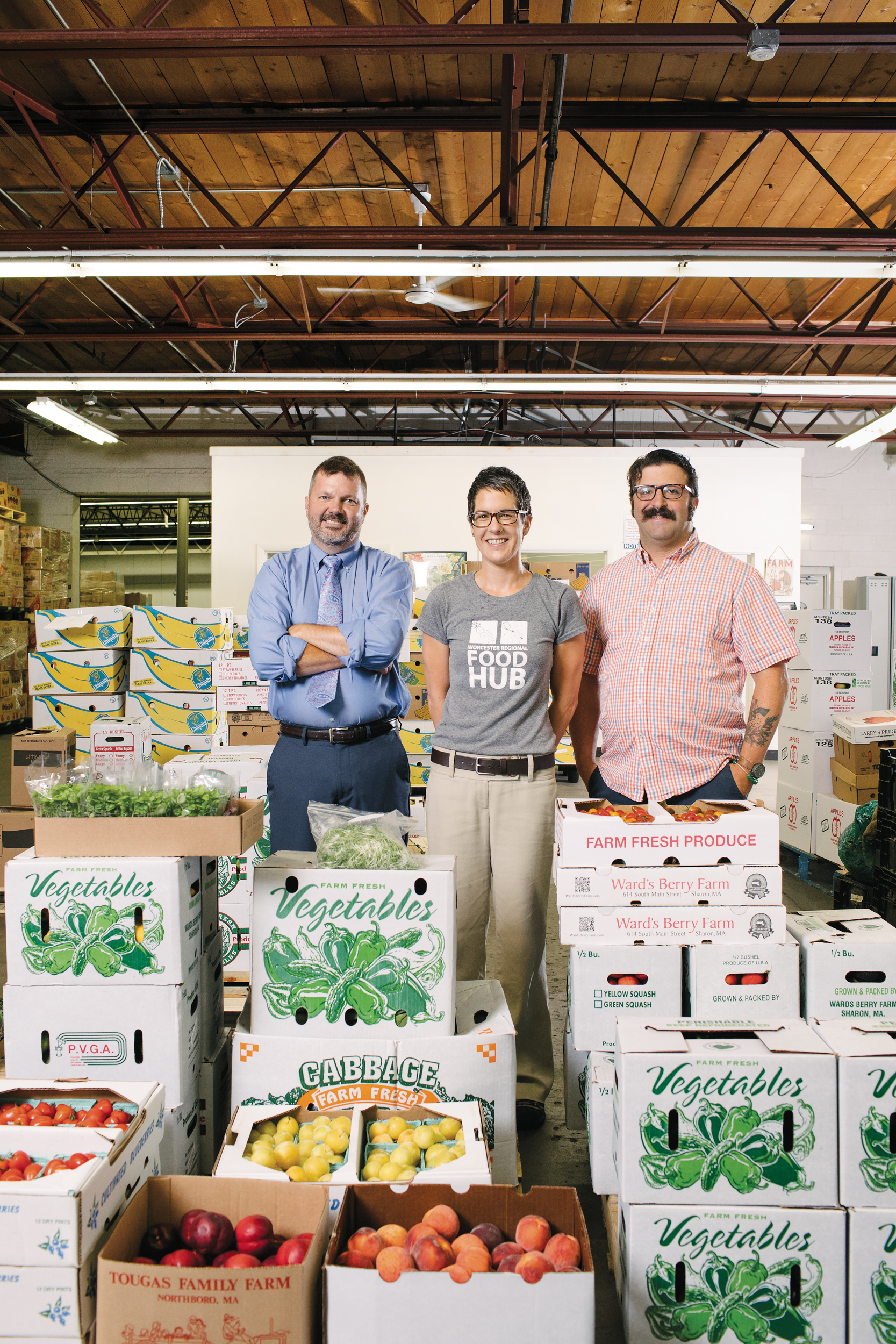
Time and money were definitely factors as Quisha Papia and Brittany English signed on to the incubator kitchen to do prep work for their gluten-free and dairy-free food truck business, StrEATfoodRX.
Rogers had introduced them to several breweries for pop-up events. “As we did more events in Worcester and the MetroWest area, we realized that the kitchen at the Worcester County Food Bank is convenient,” Papia said. “They also have a great network of producers. We get meat from Lilac Hedge Farm in Rutland, produce from Red Fire Farm in Montague and Upswing Farm in Ashland and our tortillas come from a vendor in Hadley who uses corn grown in the Connecticut River Valley.”
Papia and English buy Drop It Like It’s Hot salsa from another incubator kitchen client, YouthGrow, a youth development and urban agriculture program of the Regional Environmental Council in Worcester. These young entrepreneurs grow jalapeno peppers for the salsa on two urban farms and produce jars of it at the incubator kitchen.
The StrEATfood truck serves tacos, nachos and sliders with pulled pork and chicken, vegan ground “beef” and a variety of veggies along with dairy-free and cashew-based crema toppings.
“Our plan is to get people to eat tasty, locally sourced food made from scratch,” Papia said. “We pride ourselves on the quality of the food we serve.” She noted that at a recent food truck festival sponsored by the Southborough Rotary Club, StrEATfood sold out within two hours.
Another pair of entrepreneurs is using the Shrewsbury incubator kitchen to grow their business, Asylum Coffeetorium, into a brick-and-mortar coffee shop. Travis Duda, a graphic designer, and Zach Cave, manager of a Dunkin’ Donuts, are childhood friends whose business plan took a detour when they discovered popovers.
Duda and his wife were biking at Acadia National Park when they first tasted them at the Jordan Pond restaurant. “My wife wouldn’t stop talking about how good those popovers were,” Duda said. When his mother-in-law gave him a popover tin as a gift, he started baking them and experimenting with popover fillings. He also convinced his friend Zach to join him in a business venture: a coffee shop focused on breakfast.
“We did some testing and Zach made a lot of pastries as well as a few popovers,” Duda explained. “What everyone zeroed in on was the popovers.”
They decided to focus on popovers as vehicles for fillings such as roast beef au jus and zucchini pasta with tomatoes, garlic and basil. For dessert, they offer mini Boston Pops filled with Bavarian cream and topped with chocolate ganache.
Duda found the incubator kitchen while doing online research; he and his partner now use it to bake popovers, make fillings and “get our mise en place together,” said Cave.
They mix popover batter in the heavy-duty 16-quart mixer and bake in one of two convection ovens. Duda uses the kitchen’s sheet pans to roast beef, which they buy from a Worcester butcher, while Cave transforms fresh zucchini into papparadelle-like strands with the kitchen’s industrial slicer.
After a session of baking and slicing the two load up a minivan and assemble the ingredients at pop-up events in Worcester. They’re frequently at the 3 Cross Fermentation Co-op, a community-owned brewery, and at Out to Lunch, a weekly event on the Worcester Common.
The incubator kitchen is one of three programs of the Worcester Regional Food Hub, a collaboration between the Greater Worcester Chamber of Commerce and the Worcester County Food Bank. It’s funded by a grant from the Health Foundation of Central Massachusetts.
The food hub also helps connect small farms in the region to wholesale markets, including restaurants and food service operations such as college cafeterias and local, public schools.
“The increasingly lively food scene in Worcester is helping,” said Shon Rainford, senior project manager of the food hub. The city is shedding its stodgy industrial reputation as local breweries and trendy new restaurants—many of them occupying renovated factories and mills—draw crowds of college students and young professionals.
Though small in comparison to incubator kitchens in the Boston metro area, Worcester County’s sole incubator kitchen is busy every day, as increasing numbers of entrepreneurs seek to find and fill a niche in the local food economy. “We’re at the point now where we’re running the kitchen from 9am to 5pm daily to accommodate all our clients,” said Rainford. As demand for kitchen space grows there are plans to add early-morning and evening hours.
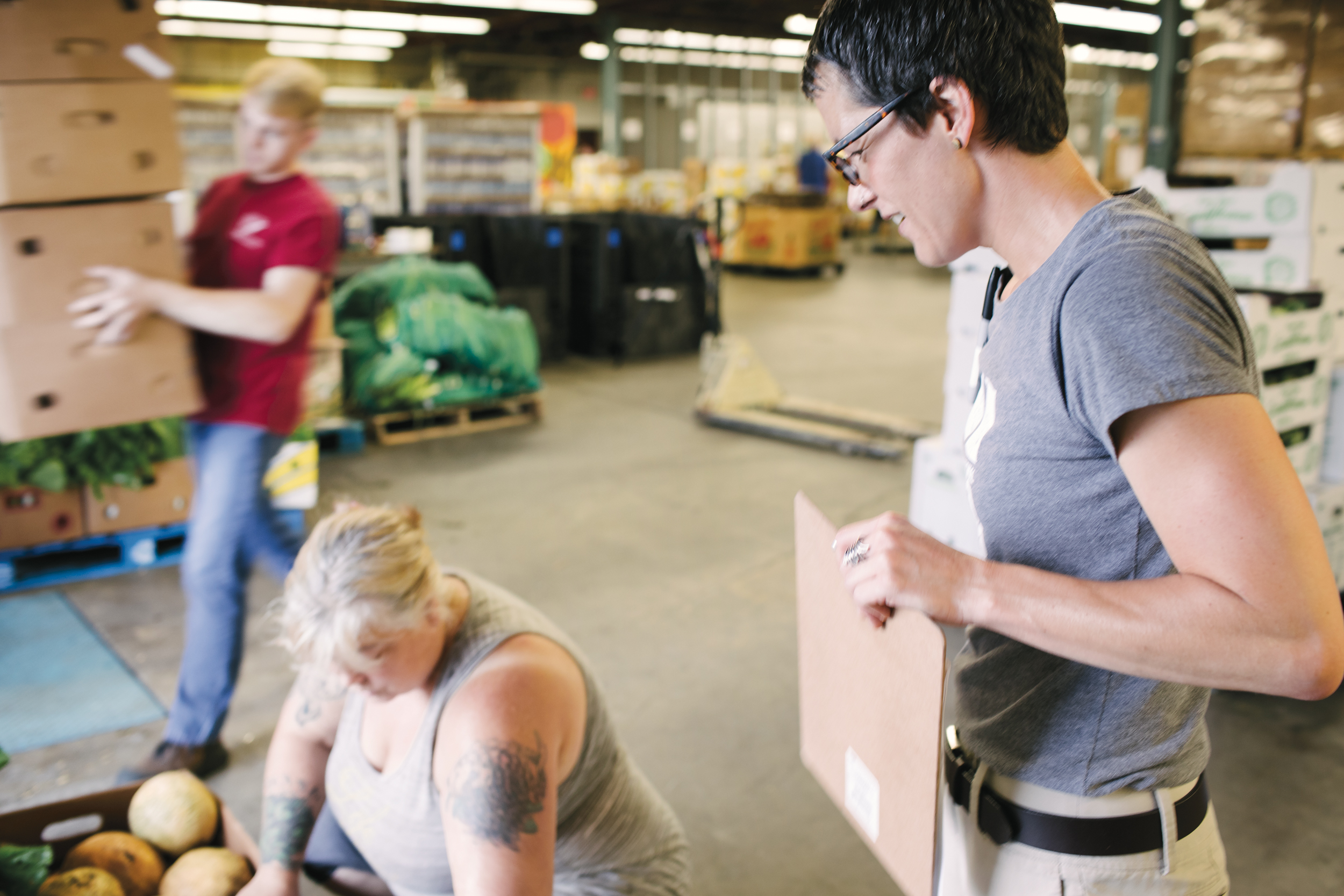
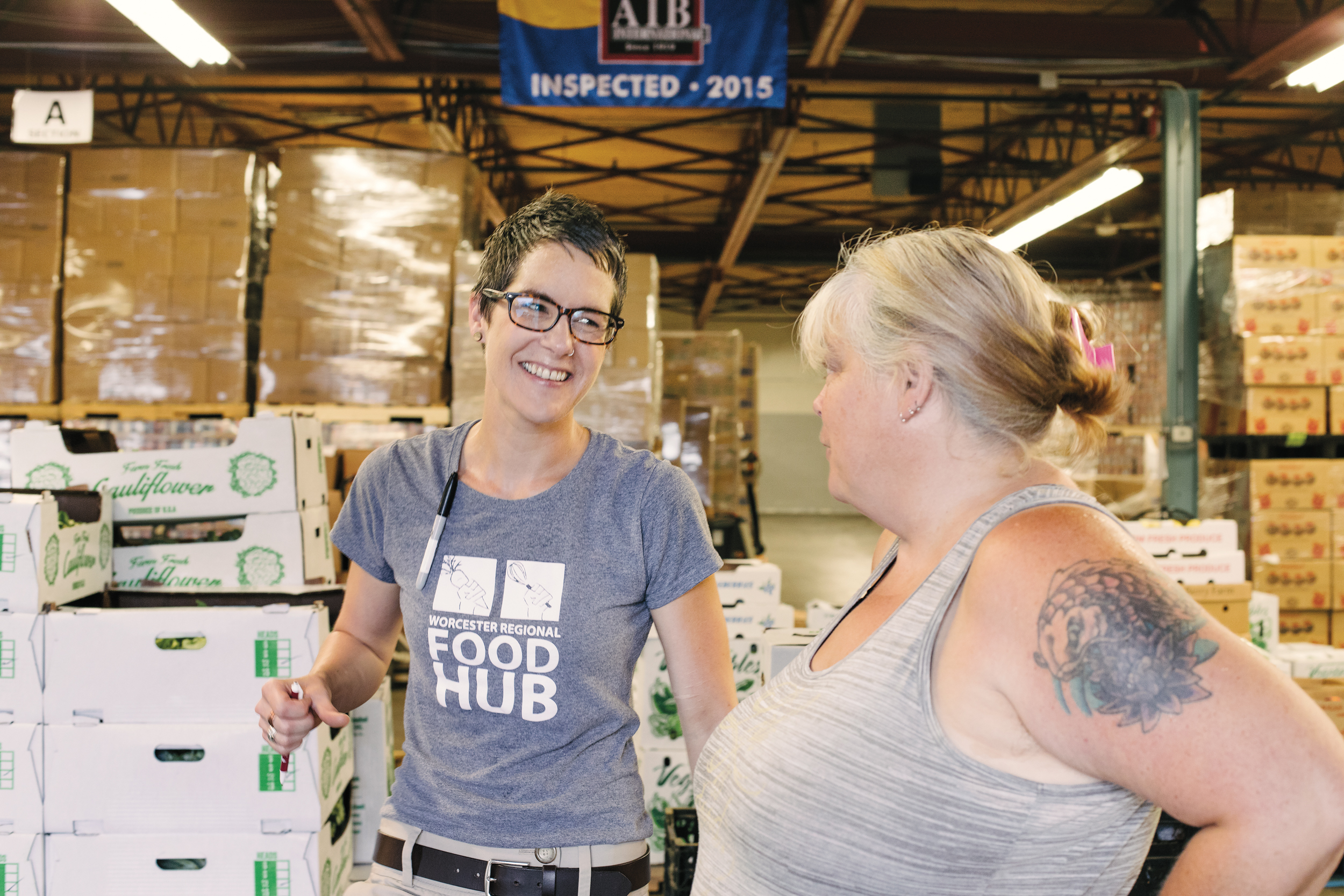
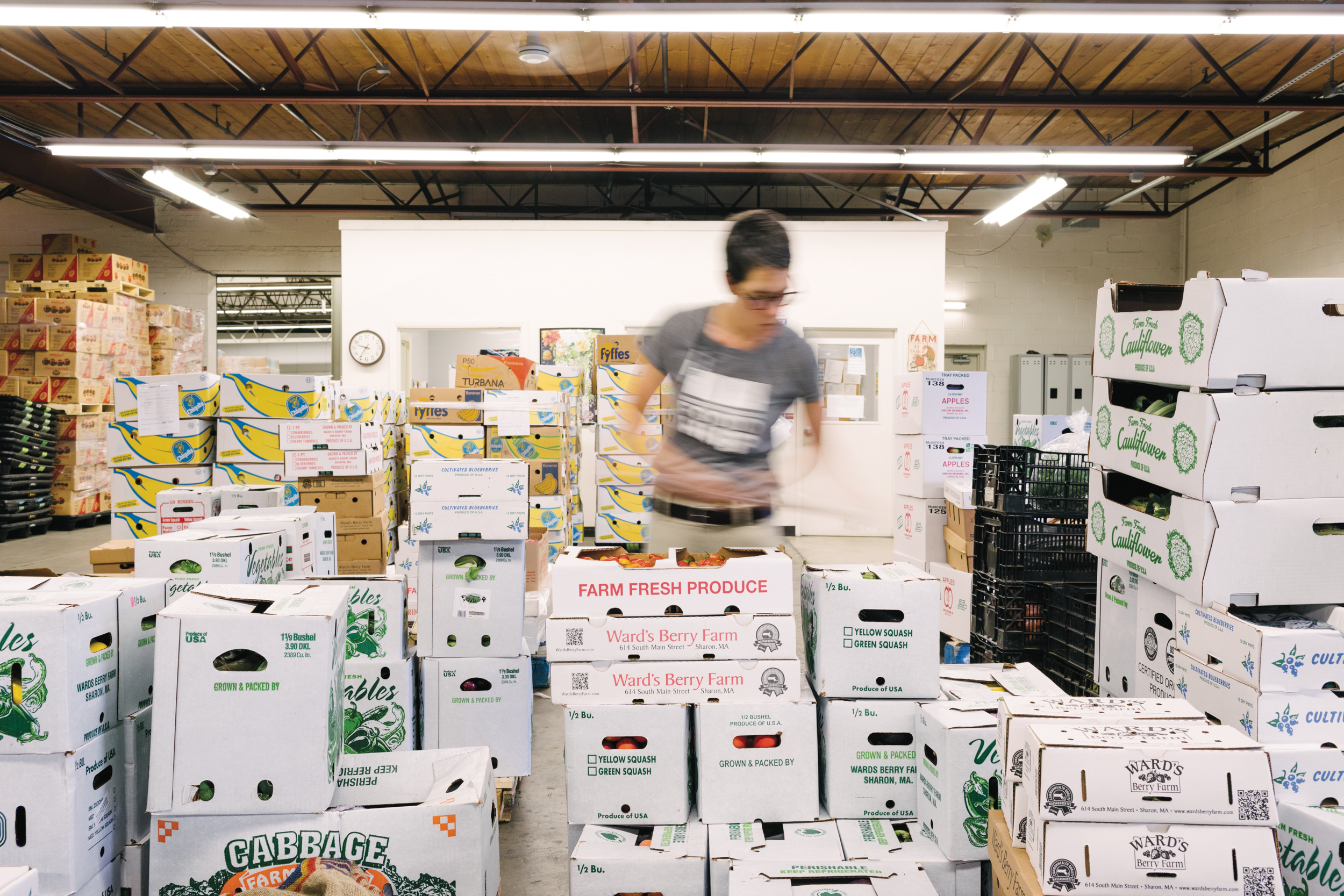

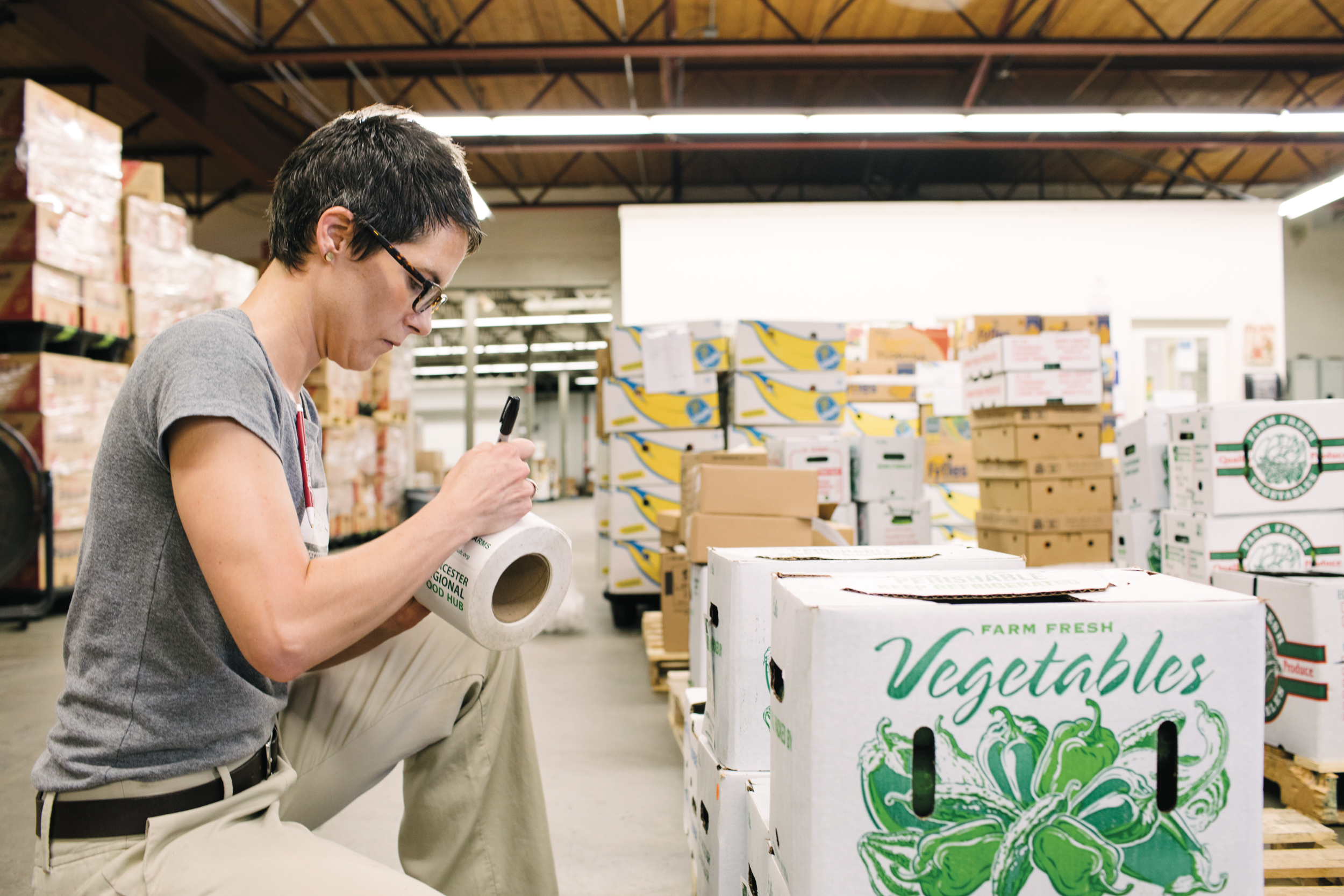
Managing growth will be a challenge for Worcester County’s incubator kitchen as well as its clients, who appreciate the collegial atmosphere and one-on-one attention from staff.
“It doesn’t feel at all like borrowed space,” says Zach Cave. “For the four hours we’re here, it’s our kitchen.”
This story appeared in the Fall 2018 issue.



